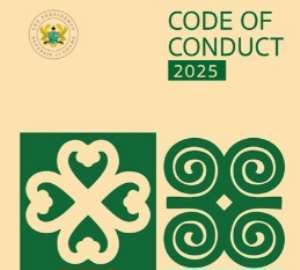
The controversy surrounding Sammy Gyamfi’s financial gift to Nana Agradaa has ignited national discourse on ethical leadership and the application of governance principles in Ghana. While Gyamfi’s action was framed as personal generosity, the backlash raises a fundamental question—where should public officials draw the line between social duty and political accountability?
President Mahama’s Code of Conduct for Public Officials seeks to establish clear ethical standards, ensuring that public officeholders uphold integrity, transparency, and accountability. However, this incident, alongside documented financial excesses by NPP stalwarts, exposes areas of ambiguity that demand a thorough review before final adoption.
Why the Code Must Be Revised and Open to Public Review
A governance framework built without public input risks being selective in application and lacking true accountability. As Ghanaians, we must demand that Mahama’s Code of Conduct undergoes an open and participatory review process, ensuring it reflects:
Uniform Application Across Political Parties: Ethical governance should not be selective. The extravagant cash displays by NPP figures should face equal scrutiny under the Code. Policies must apply universally, ensuring that no political leader engages in unchecked financial practices. Clear Distinctions Between Cultural Giving and Influence Peddling: Ghanaian traditions celebrate generosity, but governance requires safeguards against patronage and favoritism disguised as goodwill. The Code must define acceptable financial gestures within social, religious, and political contexts. Transparent Disclosure Mechanisms: Public officials engaging in substantial financial transactions should be required to declare donations, preventing backroom deals. Structured reporting can separate genuine generosity from transactions with political intent.
A Call for Public Engagement
This review cannot be left solely in the hands of political actors. Ghanaian citizens, civil society organizations, and governance experts must be actively engaged in refining the Code of Conduct.
I call on President Mahama to:
1. Publish a draft version of the revised Code for public input, ensuring national consensus.
2. Facilitate independent forums where citizens and governance experts can propose revisions, making the framework transparent and practical.
3. Ensure non-partisan oversight in Code enforcement, preventing selective accountability.
A robust governance framework must serve all Ghanaians, ensuring that ethical leadership transcends party lines and remains free of personal or political favoritism.
Conclusion: Leadership Must Be Beyond Reproach
Ghana’s governance system must evolve to harmonize tradition with modern accountability standards. If Mahama’s Code of Conduct is to restore trust, it must be refined with public scrutiny, ensuring ethical leadership remains transparent and universally enforced.
Ultimately, governance integrity demands consistent application, transparency, and public trust—qualities that must form the foundation of the revised Code.
Retired Senior Citizen
Teshie-Nungua
[email protected]


